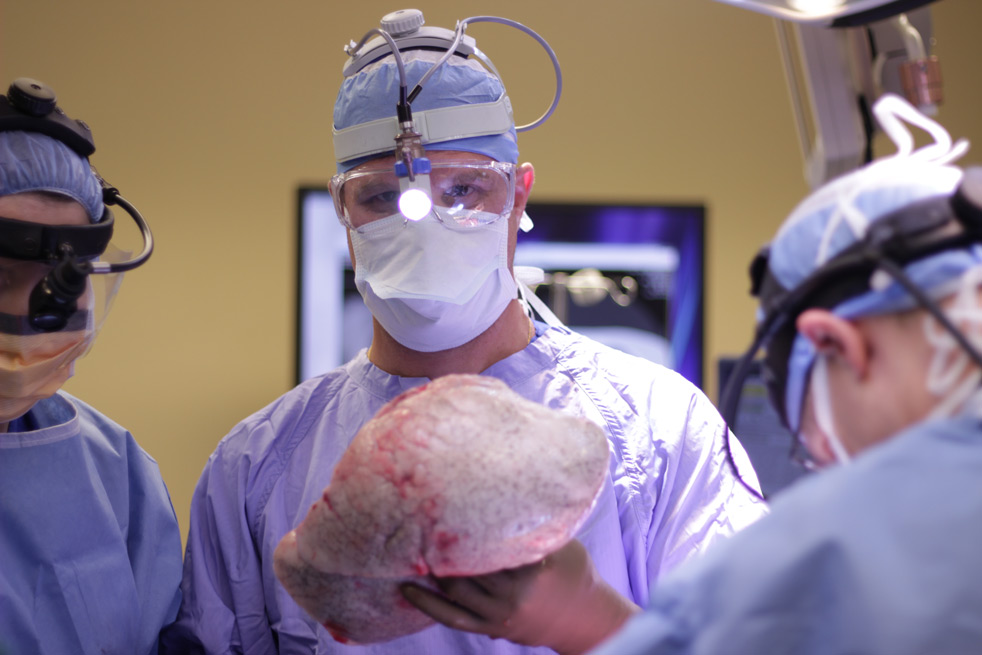
Dr. Marcelo Cypel holds donor lungs before transplanting them. (Photo: UHN)
As part of a world-first clinical trial in the Transplant Program and the Sprott Department of Surgery at University Health Network (UHN), 10 patients have received donor lungs from individuals infected with hepatitis C. Knowledge gained from this bold study could increase the number of lung transplants in North America by almost 40 per cent, helping more people to live on. This world-first was made possible through research fueled by generous supporters of Toronto General & Western Hospital Foundation.
The transplants were performed at Toronto General Hospital (TGH) between October and May. Eight of the patients have already tested negative for the virus following their recovery and the last two patients have just started a drug regimen, first shown to be effective by UHN scientists, that cures hepatitis C.
“We have a great number of potential lung donors who are hepatitis C positive – many of whom didn’t even know they were sick when they were alive,” says Dr. Marcelo Cypel, thoracic surgeon at TGH, scientist at Toronto General Hospital Research Institute and principal investigator in the study. “The current practice is to not use these organs, but we started to question if that still made sense in an era when we have a treatment that can cure hepatitis C. These are otherwise very good organs.”
The clinical trial is the first to assess the safety of transplanting hepatitis positive organs to non-infected patients using Ex Vivo technology. Developed at TGH in 2008 with support from Toronto General & Western Hospital Foundation donors, the Toronto Ex Vivo Lung Perfusion System (EVLP) allows surgeons to assess organs outside of the body and predict how well they will do before transplantation.
Within the EVLP, the hepatitis C-infected donor lungs were infused with fluids, nutrients and antiviral medications to lower the virus count before being transplanted into the patients. Initial results suggest doctors can remove up to 90 per cent of the hepatitis C virus from the lungs.
Stanley De Freitas, 73, agreed to receive a hepatitis-positive lung in October. He had been diagnosed with a lung disease called idiopathic pulmonary fibrosis, with his health rapidly declining.
“I realized time is crucial, and I knew it wasn’t getting better, it was going to get worse,” the Toronto grandfather said, adding that his disease was quite aggressive.
As soon as the virus was detected post-transplant, doctors started De Freitas on antiviral drugs. He is breathing well and blood tests show he is hepatitis-free.
“I am elated,” said De Freitas.
The study is co-led by Drs. Cypel, Atul Humar, Medical Director of UHN’s Transplant Program, and Jordan Feld, Research Director and R. Phelan Chair in Translational Liver Research at the Toronto Centre for Liver Disease at TGH. Researchers plan to study the possibility of using the same approach to transplant hepatitis C-infected hearts and kidneys.
